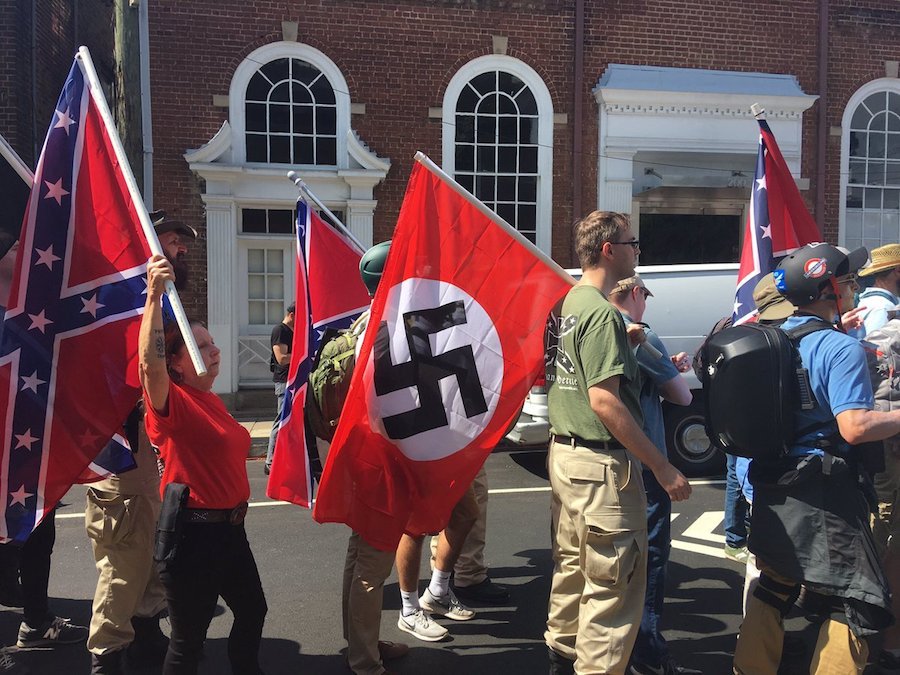
Over the weekend there were some public gatherings of white nationalists in Charlottesville, Virginia. These were met by counter-protesters, and some of the encounters between the groups got violent. The worst violence came on Saturday, when someone identified with the white nationalist movement deliberately drove their car into a crowd of protesters, killing one and injuring many others.
Everyone was kind of wondering what, if anything, President Trump would say about this. As it turns out, he had something to say, and it was…telling. You can read the whole thing here, but this is arguably the key sentence:
We condemn in the strongest possible terms this egregious display of hatred, bigotry and violence on many sides, on many sides.
It was the “many sides” phrase that got people’s attention. Trump may not exactly have been wrong — given that some of the counter-protesters were antifa activists, it seems likely that both sides got violent — but it’s the seemingly deliberate obscuring of the fact that one of the sides consisted of virulent racists that’s so revealing. We’re talking about a guy who famously denounces anyone who angers him, from his own appointed Attorney General to a department store that stops carrying his daughter’s line of fashion accessories. Yet he had nothing bad to say about any of the white supremacists, not even when asked directly about it. Twice.
For more insight into this matter, let’s see what one of my most frequent sources of blogging material has to say about it. Here’s professional ethicist Jack Marshall writing about the president’s remarks:
In contrast to the President’s correct restraint, we have Virginia’s governor Terry McAuliffe, who used the power and influence of his office to declare that people holding views he does not approve of are not welcome in the Old Dominion. In the midst of some patriotic grandstanding, he said…
“You are not wanted in this great commonwealth. Shame on you….There is no place for you here. There is no place for you in America.”
This is leftist fascism, by definition. Who is Terry McAuliffe, or Virginia, or anyone, to say who can or should have a “place” in the United States of America? How is this statement applied to white nationalists any different legally or ethically from applying it to Muslims, or lesbians, or abortion advocates, or Catholics, Jews or libertarians?
I wasn’t expecting that. Damn, being a professional ethicist must be really hard. I never would have guessed that was the correct answer.
[Ron Howard voice]
It was not the correct answer.